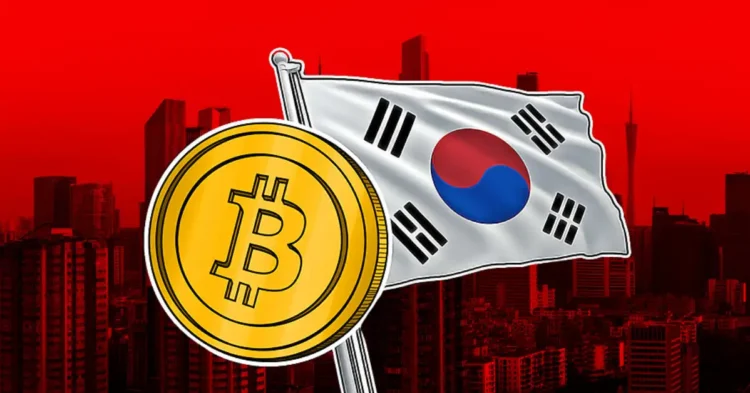The cryptocurrency landscape faced a seismic shift as prices plunged and exchanges faltered after South Korean President Yoon Suk Yeol’s unexpected declaration of martial law. This announcement came on Tuesday night and has been widely reported, including by The Korea Herald. President Yoon stated that the “emergency martial law” was a necessary response to threats from North Korea’s communist forces and to root out anti-state elements, as noted in a CNBC live YouTube video. Additionally, he highlighted attempts by the Democratic Party to impeach government officials.
“This is an unavoidable measure to ensure the freedom and safety of the people and guarantee the sustainability of the nation against the unrest stirred by these subversive, anti-state elements,” remarked President Yoon.
Major Tokens Experience Significant Drops
The impact of the martial law declaration was immediately felt in the cryptocurrency markets. Bitcoin and XRP, two of the most traded tokens on local exchanges, saw dramatic price drops of up to 30% on platforms like Upbit before experiencing a slight recovery. Specifically, Bitcoin’s value plunged from $96,000 to $63,000 in U.S. dollar terms. In South Korean won, its price hit a low of ₩88,266,000 on Upbit, a steep decline of 33% from ₩132,429,000 in under 30 minutes. Subsequently, Bitcoin’s price slightly rebounded on Upbit, reaching around ₩127,000,000, equivalent to approximately $88,600 at the time of writing.
The declaration of emergency martial law caused major cryptocurrencies to plummet against the Korean won on South Korean exchanges. Bitcoin’s sharp decline had a domino effect on altcoins, with Ethereum dropping by 35% and Ripple falling by an astonishing 51%. This turmoil also led to temporary connection disruptions on domestic cryptocurrency exchanges like Upbit and Bithumb.
XRP Trading Volume Surges on Upbit
Despite the market chaos, XRP saw a remarkable surge in trading volume on Upbit, South Korea’s leading crypto exchange. The XRP/KRW trading pair alone accounted for nearly 30% of Upbit’s total trading volume, reaching an impressive $7 billion. Analysts suggest that the surge in activity was largely driven by sell orders, as the broader crypto market faced substantial pressure.
This massive trading volume even surpassed that of KOSPI, South Korea’s primary stock market index, sparking speculations about XRP’s potential price drop below $2 amidst these unexpected political developments. Furthermore, the South Korean won’s exchange rate against the U.S. dollar fell by nearly 3% following the martial law announcement.
Understanding Martial Law in Korea
Martial law involves the replacement of civilian government with military rule, suspending civilian legal processes in favor of military ones. During martial law, standard civil liberties may be temporarily suspended, impacting daily life and governance.
Reasons Behind South Korea’s Declaration of Martial Law
In an unannounced late-night broadcast on YTN television, President Yoon Suk Yeol declared martial law, asserting that it was crucial to eliminate “shameless pro-North Korean anti-state forces.” He emphasized that this measure was intended to rebuild and safeguard the free Republic of Korea, which he described as being on the brink of national ruin. His goal is to swiftly eradicate anti-state forces and restore normalcy to the country.











